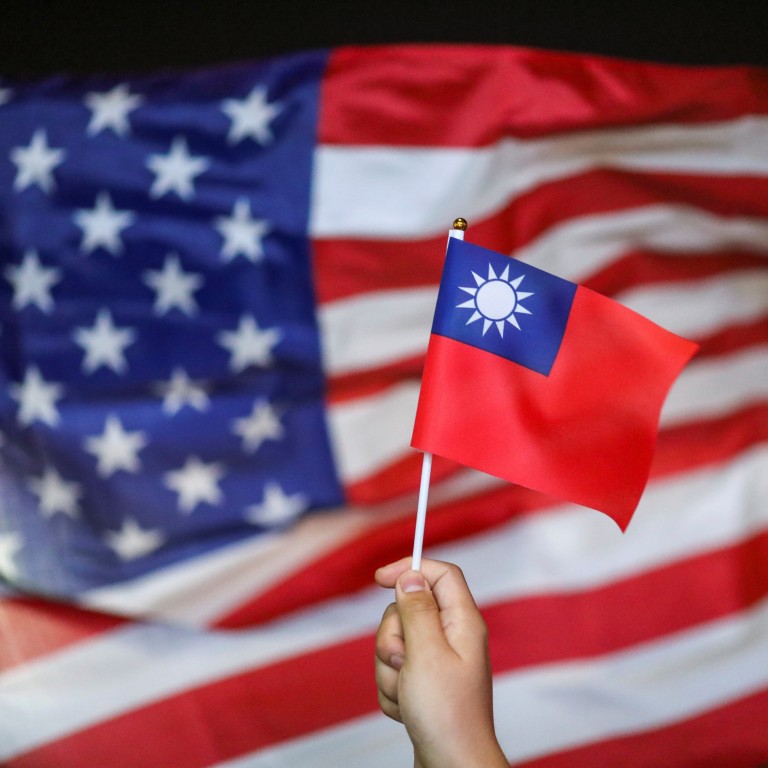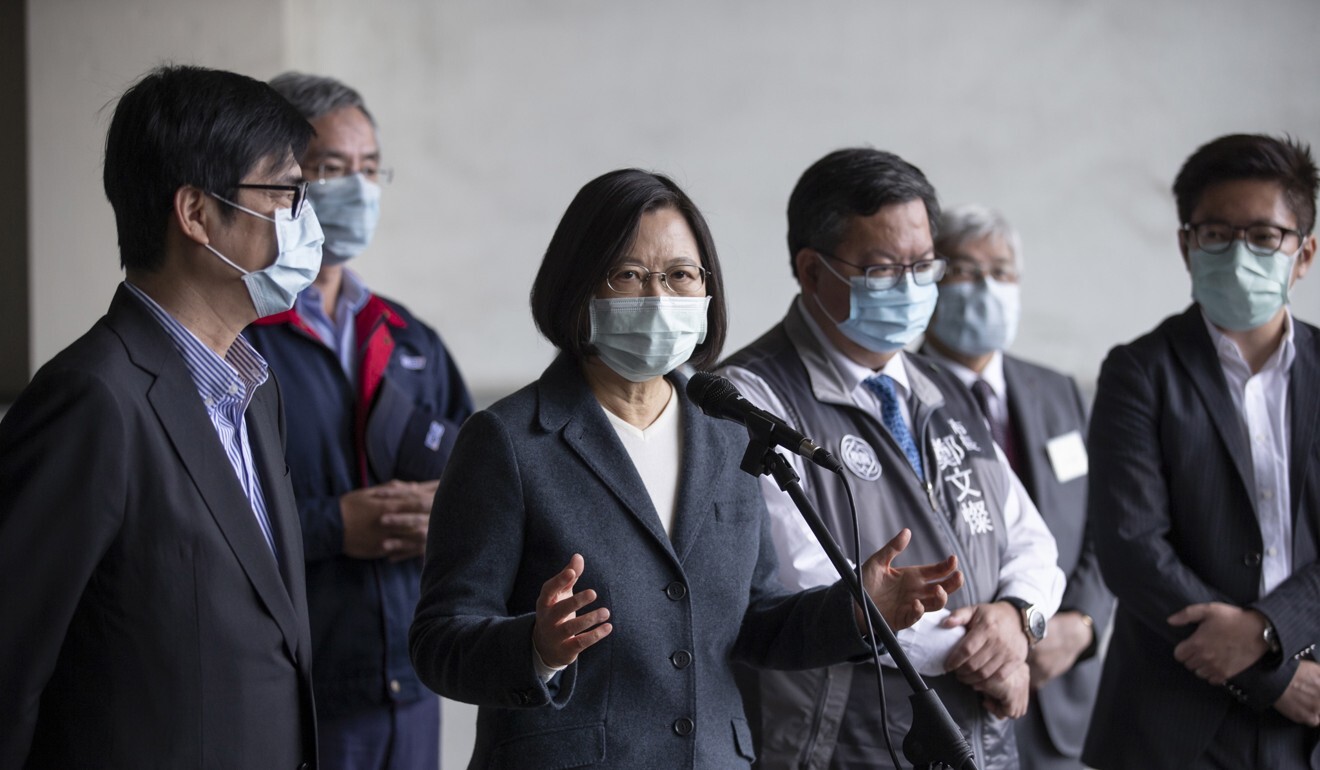
Coronavirus outbreak brings US and Taiwan closer together
- Ongoing tensions between Washington and Beijing have prompted the US to promise to cooperate with the island for ‘years to come’
- Taiwan’s exclusion from the WHO has been another source of tension and the US is backing its efforts to join more international organisations
The US has used the Covid-19 pandemic to shore up its relations with Taiwan despite strong protests from mainland China.
On Friday the de facto US embassy in Taiwan promised “more cooperation with Taiwan for years to come” in a move observers interpreted as a way of highlighting these closer ties.
Although the US does not have formal diplomatic relations with the island, the Taiwan Relations Act of 1979 allows it to maintain economic and other significant relations and commits it to supplying arms to help it defend itself.
Taiwan and World Health Organisation trade barbs over early coronavirus warnings
In a Facebook post on Friday to mark the 41st anniversary of the law, the American Institute in Taipei said: “April 10 is the anniversary of the TRA signing. The Act is the foundation of the ongoing and thriving US-Taiwan partnership.”
It has warned Washington against entering any form of relations with Taiwan that would promote the island’s statehood.
These warnings, however, have been largely ignored since Donald Trump took office as president in 2017 and adopted a more confrontational policy towards Beijing.
Taiwan fights to save its tourism industry amid battering by coronavirus and Beijing
Since the deadly disease started spreading in Wuhan, where the coronavirus that caused Covid-19 first emerged, the Trump administration has stepped up its cooperation with Taiwan to fight the outbreak, tackle disinformation – especially coming from Beijing’s cyber troops – and discuss their security partnership.
On Saturday, Taiwan’s defence ministry said an American destroyer, the USS Barry, and two reconnaissance military aircraft have been operating near Taiwan after a number of Chinese warplanes were spotted southwest of the island on Friday morning and entered the Bashi Channel between Taiwan and the Philippines.

Su Tzu-yun, a researcher at Taiwan’s Institute for National Defence and Security Research – a government think tank – said the US operations were designed to tell the PLA that Washington was watching its activities and help bolster Taiwan’s defence.
The law authorises the US government to increase economic, diplomatic and security engagement with nations upgrading their relations with Taiwan, or reduce engagement with nations taking actions that seriously undermine Taiwan.
Beijing bars students from starting courses in Taiwan amid coronavirus fallout
It also calls on Washington to support Taiwanese membership, or observer status, of international organisations such as the World Health Organisation and International Civil Aviation Organisation.
Beijing, which has suspended official exchanges with Taiwan since Tsai Ing-wen was elected president in 2016 and refused to accept the one-China principle, has sharply protested against the TAIPEI Act and each of the US moves to bolster relations with the island.
Lai I-chung, from the pro-government Taiwan Thinktank, said the island’s authorities should seize the opportunity to promote its case for joining international bodies now that “Taiwan’s efforts in containing the pandemic have won wide recognition from the world”.
Despite its exposure to the Chinese mainland it has managed limit the number of Covid-19 cases to the low hundreds with just six deaths reported as of Saturday.
In an effort to increase its international visibility, the island has also offered to donate more than 10 million surgical masks and other medical equipment to the US and Europe, winning praise from the US State Department and the European Union.
Alexander Huang Chieh-cheng, a professor of international relations and strategic studies at Taipei’s Tamkang University, said Washington is using its deepening relations with Taiwan as part of its strategy to counter Beijing. “The US doesn’t want to see Taiwan continuing to lose its allies,” Huang said, adding the pandemic provides the US the best chance to push the cause for Taiwan to join global organisations.
“But with such developments, cross-strait relations are expected to worsen further, especially after the two sides have traded barbs over measures they have adopted unilaterally in handling the pandemic, including people flow and other disagreements,” he said.
Taiwan has banned mainlanders from visiting the island since February while disputing the methods proposed by Beijing to repatriate Taiwanese people stuck in Wuhan. Its continued use of the term “Wuhan pneumonia” in referring to Covid-19 has also greatly irritated the mainland.
Sign up now and get a 10% discount (original price US$400) off the China AI Report 2020 by SCMP Research. Learn about the AI ambitions of Alibaba, Baidu & JD.com through our in-depth case studies, and explore new applications of AI across industries. The report also includes exclusive access to webinars to interact with C-level executives from leading China AI companies (via live Q&A sessions). Offer valid until 31 May 2020.

